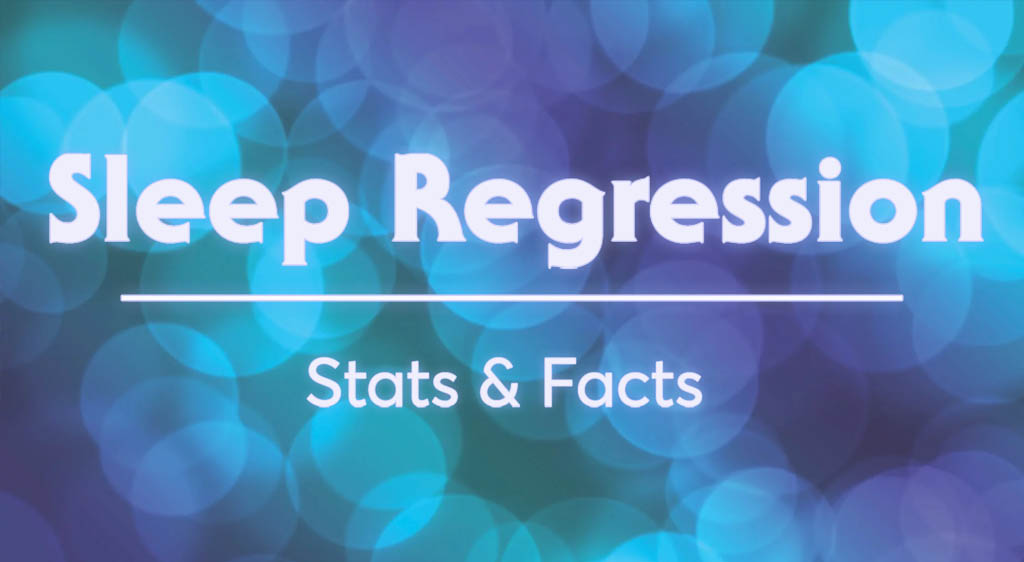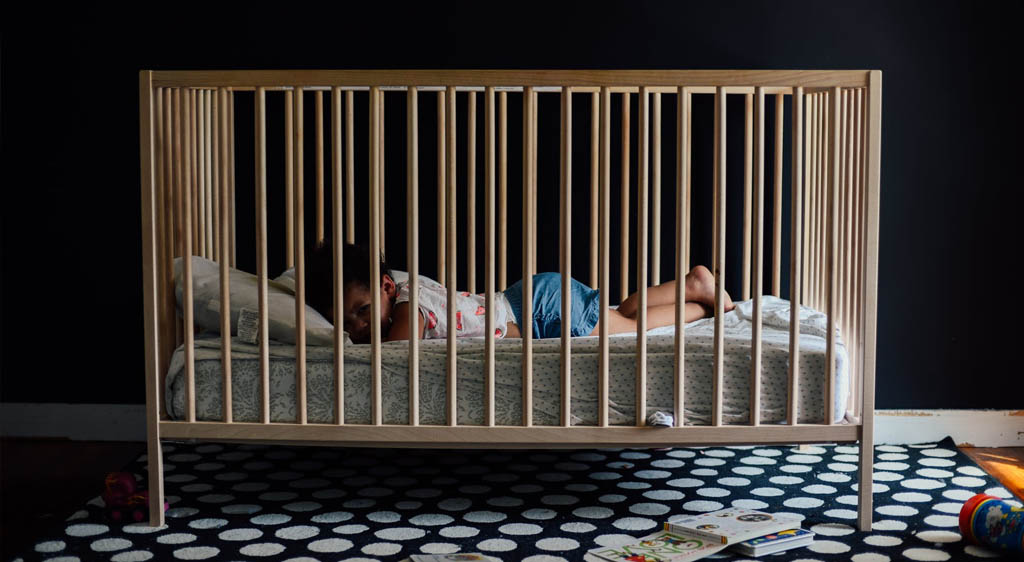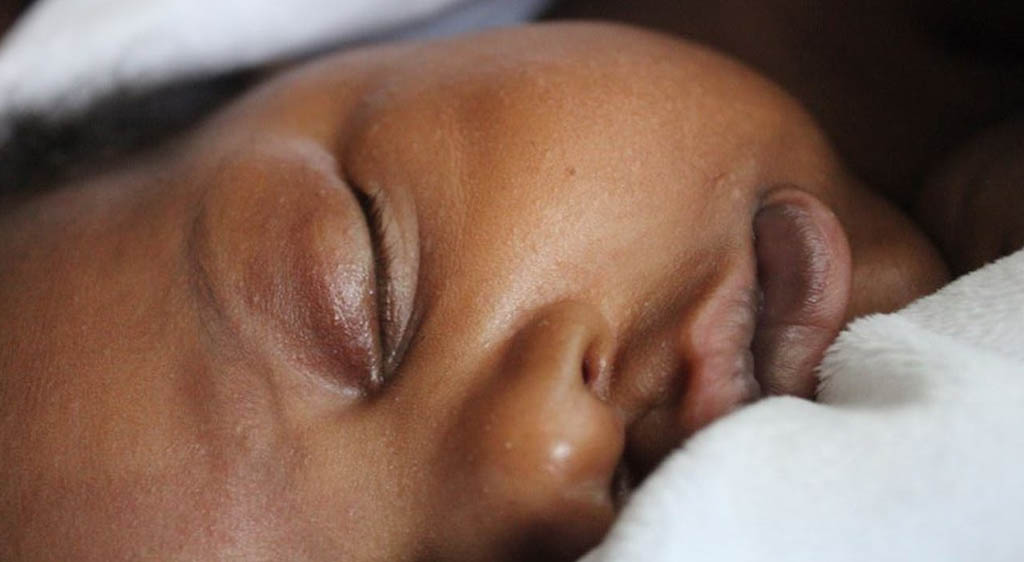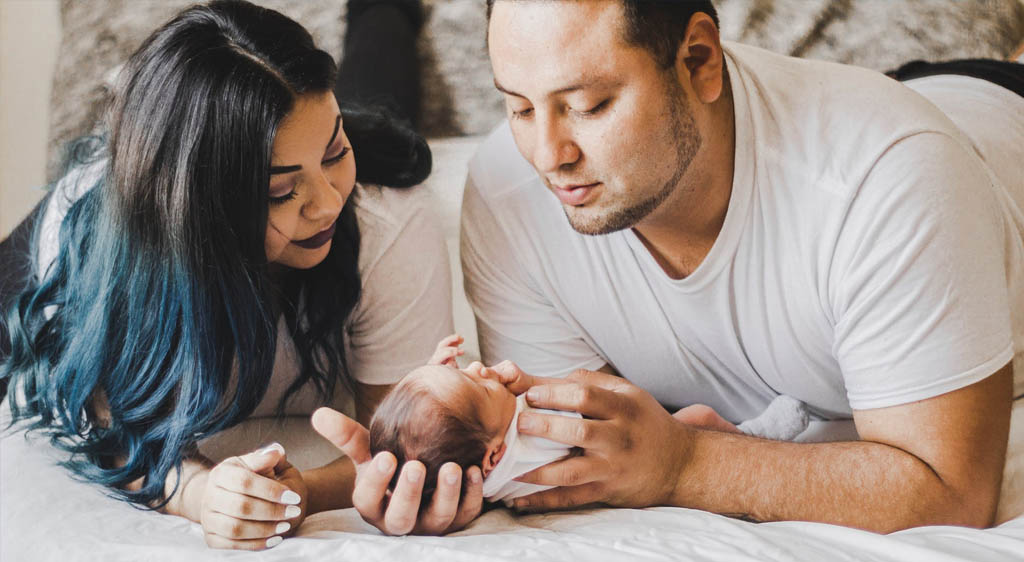Sleep Regression Statistics
For people with babies, sleep regression can be an annoying thing. Sleep regression is when a baby’s sleep pattern shifts. For days or even weeks, the baby may not sleep or nap at the same time as they used to. Sleep regression can also include shorter naps, extreme fussiness at nap or bedtime, fighting sleep, and frequent wakings at night This can happen at inconvenient times as well like at 2 AM, so it can be frustrating for parents. However, sleep regression also implies that the baby may be going through a growth spurt or their brain is developing.
(Healthline)
The Most Surprising Sleep Regression Statistics
- Most babies do not start sleeping through the night without waking up until they are about 3 months old, or until they weigh 12 to 13 lbs.
- Sleep regression can be as long as 6 weeks.
- Changes that happen within the sleep regression of a 4-month-old baby are permanent.
- Sleep regression at 6 months is uncommon, but it can still happen.
- Sleep regression at 8 months old may be due to the developmental milestones at this age.
- Sleep regression at 9 months old is a continuation from 8 months old. Likewise, sleep regression at 10 months old is a continuation from 9 months old.
- By 1 year of age, most of the baby’s sleep shifts to nighttime and sleep periods lengthen.
- Babies seem to cycle through 10 timed regressions, but some studies have found this to be higher.
(Baby Sleep Site), (Melissa Burnham, PhD), (Hedwig H.C. Van De Rijt-Plooij, PhD and Frans X. Plooij, PhD), (De Weerth, MD and P. Van Geert, MD), (Stanford Children’s Health)
General Sleep Regression Statistics and Facts
1. A newborn sleeps around 16 hours per day.
Newborns commonly spend 8 or 9 hours of the night sleeping, while they spend the rest of the time in the day.
(Stanford Children’s Health)
2. In the following months, the infant’s total sleep needs gradually decreases, but how the sleep is distributed within 24 hours varies. These are shown below.
| Age | Estimated Total Hours of Sleep | Total Hours of Nighttime Sleep | Total Hours of Daytime Sleep |
|---|---|---|---|
|
1 Month
|
15.5
|
8 to 9
|
7
|
|
3 Month
|
15
|
8 to 9
|
4 to 5
|
|
6 Month
|
14
|
9 to 10
|
4
|
|
9 Month
|
14
|
10
|
3
|
|
1 Year
|
14
|
11
|
3
|
|
1.5 Year
|
13.5
|
11
|
2.5
|
|
2 Year
|
13
|
11
|
2
|
(Standard Children’s Health)
3. Sleep regression at 4 months can be surprising for most parents.
Before the first onset of sleep regression, the parents may have built a routine when it comes to the baby’s sleep behavior. Thus, when sleep regression starts at around 4 months, it can catch uninformed parents off guard, ruin their routine, and confuse them on how to care for their child.
(Healthline)
4. At 4 months, sleep regression statistics estimate that it lasts around 2 to 4 weeks.
However, not all babies will have sleep regression at 4 months. Some will have it earlier or later.
(Healthline)
5. The 1st sign of sleep regression is a sudden worsening in sleep patterns.
These signs can include:
- Fussiness
- Multiple night wakings
- Less napping
- Changes in appetite
(Healthline)
6. There are ways to manage sleep regression at 4 months.
- Let your baby practice what they learn.
Sleep regression is actually a sign of brain development. The baby may be starting to learn new information that they may want to practice at night, hence the unusual awakenings at night. Thus, if you let them practice these new skills, like rolling over or sitting up, during the day, they may be less inclined to do them at night.
- Fully feed your baby.
Give your baby full feedings during the day. Since your baby is curious and wants to learn new things, they may opt to practice those instead of feeding. This will make them likelier to be hungry at night and wake up to feed.
- Help your baby go back to sleep.
If your baby wakes up in the middle of the night, you can help them go back to sleep by offering them both physical and verbal reassurance. You can hold and rock them to sleep.
- Darken the room.
Keep the baby’s room dark to encourage sleep, especially during daytime naps. If they wake up, the darkness can allow them to fall back to sleep. Moreover, when it is time for them to wake up, especially in the morning, keep them in rooms that are fully lit with natural sunlight. Sunlight influences the human body’s circadian rhythms or biological clock.
- Make a new routine.
Before the sleep regression, parents tend to develop a bedtime routine for their baby. Thus, during sleep regression, since the baby’s sleep pattern changes, so should your bedtime routine. A new routine can help prime the baby for sleep. This includes rescheduling your playtimes and feeding times. You can also wake your baby in the morning if they are sleeping longer than usual, as long as it’s at the same time each day.
- Do not digress.
When you attend to your baby when they wake up in the middle of the night, make the session quick and quiet. Limit talking to soothing words and avoid playing. Moreover, avoid using devices such as your phone since the light can stimulate the baby. This approach can reinforce the concept that nighttime is for sleeping.
(Healthline), (Baby Sleep Site)
7. About 66% of 6-month-olds can sleep through the night.
Any sleep regression signs in a baby’s 6th month is likely a continuation of their sleep regression at 4 months.
(Stanford Children’s Health)
8. Some 6-month-olds may get hungry during the night.
Thus, although most of them will sleep through the night, it will not always be uninterrupted. A 6-month old will likely need at least 1 feeding at night if you are breastfeeding. Since a 6-month old is experiencing rapid development, they will be more active and will use more energy. Thus, the extra feedings at night are understandable. Your baby will eventually adjust by being able to eat more during the day so they will be less likely to feel hungry at night.
(Baby Sleep Site)
9. Sleep regression statistics suggest that an 8-month-old’s sleep regression can last between 3 and 6 weeks.
If the sleep troubles appear to sort themselves out spontaneously, then it may be due to other issues that the baby is facing, such as a change in schedule, an illness, or teething, rather than experiencing a true regression.
(Healthline)
10. Sleep regression at 8 months usually has 2 reasons.
These reasons are the developmental milestones a baby achieves at 8 months or shifts in nap schedules and sleep needs.
(Healthline)
11. An 8-month-old typically experiences several developments.
At this age, a baby learns to scoot, crawl, and pull themselves up. Their intellect is also developing, which includes their language skills. As a baby tries to practice these new skills, sleep disturbances may occur. A baby may also experience separation anxiety as they learn that some things can come and go. Thus, a baby may feel upset when the parents leave the room, so they may start crying instead of going to sleep.
(Healthline)
12. An 8-month-old will typically sleep 12 to 15 hours within a 24-hour period.
This is also typically distributed into 10 to 11 hours of nighttime sleep and the rest into daytime naps. However, with sleep regression, the nighttime sleep and daytime naps can be disrupted. Either the baby is more inclined to practice their new learnings, or their brain is too excited as it processes information.
(Healthline), (Baby Sleep Site)
13. An 8-month-old will spend more time awake during the day.
At this age, a baby’s sleep needs are significantly less from when they were a newborn. They may also nap less during the day. These natural changes in sleep pattern can also contribute to sleep regression.
(Healthline)
14. An 8-month old will typically take 3 daytime naps.
However, sleep regression statistics suggest that this number will go down to 2 as sleep regression occurs. This can tire the baby and make them fussier.
(Healthline), (Baby Sleep Site)
15. Sleep regression at 8 months is temporary.
This contrasts with the sleep regression at 4 months, which is permanent. Although it can last between 3 to 6 weeks, since it is temporary, parents can also make temporary slight changes to their routine to adjust. Some suggestions say to continue following the routine parents already formed. For example, if rocking the baby to sleep was successful before, then continue doing it at 8 months, although it may take longer for the baby to doze off.
(Healthline)
16. Sleep regression statistics suggest that sleep regression at 12 months can also last up to 6 weeks.
At this age, the sleep regression is due to the baby learning to say their first words or take their first steps.
(Sleep Lady), Baby Sleep Made Simple)
17. One of the effects of sleep regression at 12 months is less naps.
A 12-month-old will be more inclined to stay awake during the day than how they were in previous months. However, it is still suggested to allow the baby to take 2 naps during the day. You can do this by continuing your pre-bed routines such as rocking or soothing the baby. However, do not overdo this as it can make your baby fully dependent on you for them to fall asleep.
(Sleep Lady)
18. Encourage more daytime activities for your 12-month-old.
By doing this, your baby will be less inclined to practice their learnings when it is bedtime.
(Baby Sleep Site)
19. A 12-month-old still needs 2 daytime naps.
However, one of the effects of sleep regression at 12 months is making the baby fight against naps. This may make some parents believe that only 1 nap may be necessary. However, this usually happens between 14 and 15 months. Thus, continue to encourage your baby to take 2 naps.
(Baby Sleep Site)
20. Sleep regression statistics indicate that sleep regression at 18 months may be the toughest.
Sleep regression at 18 months may consist of the toddler protesting both nighttime and daytime sleep. It becomes more frustrating since by then, the child knows how to speak and walk. Just like before, sleep regression at 18 months is due to physical and mental development. Parents can reuse the methods they used in previous sleep regressions to help their 18-month-old settle down for sleep.
(Healthline)
21. Sleep regression can still happen at 2 years.
At this age, a child may be doing social activities such as going to preschool and playing with other children. However, this should not deter you to encourage naps because if naps are not offered consistently, then the child will start seeing it as something that hinders their daytime activities. However, most children need naps until they are around 3 or 5 years. Some of the ways you can encourage naps is by having “quiet time” whether the child chooses to sleep or not. You can also put them in bed earlier to let them settle down. During this time, limit interactions between your child.
Conclusion
Sleep regression can be a frustrating time for parents, but it is a natural progression that all children need to undergo for the development. The best that parents can do is adjust and adapt to the child’s shifting sleep patterns while still meeting their child’s sleep needs.
References
Healthline:
https://www.healthline.com/health/parenting/4-month-sleep-regression
Baby Sleep Site:
https://www.babysleepsite.com/baby-sleep-patterns/sleep-regressions/
Burnham et al., 2005:
https://www.ncbi.nlm.nih.gov/pmc/articles/PMC1201415/
Van de Rijt-Plooij and Plooij, 1992:
https://www.tandfonline.com/doi/abs/10.1080/02646839208403946
De Weerth and van Geert, 1998:
https://psycnet.apa.org/record/1998-02014-002
Stanford Children’s Health:
https://www.stanfordchildrens.org/en/topic/default?id=infant-sleep-90-P02237
Baby Sleep Site:
https://www.babysleepsite.com/baby-sleep-patterns/4-month-sleep-regression/
Baby Sleep Site:
https://www.babysleepsite.com/baby-sleep-patterns/6-month-sleep-regression
Healthline:
https://www.healthline.com/health/baby/8-month-sleep-regression#definition
Baby Sleep Site:
https://www.babysleepsite.com/baby-sleep-patterns/8-9-10-month-old-baby-sleep-regression/
Sleep Lady:
https://sleeplady.com/baby-sleep/12-month-sleep-regression/
Baby Sleep Made Simple:
https://www.babysleepmadesimple.com/12-month-sleep-regression
Baby Sleep Site:
https://www.babysleepsite.com/baby-naps-2/12-month-olds-one-nap-transition/
Healthline:
https://www.healthline.com/health/baby/18-month-sleep-regression#how-long-is-it
Today’s Parent:
https://www.todaysparent.com/toddler/toddler-sleep/how-to-deal-with-toddler-sleep-regressions/



